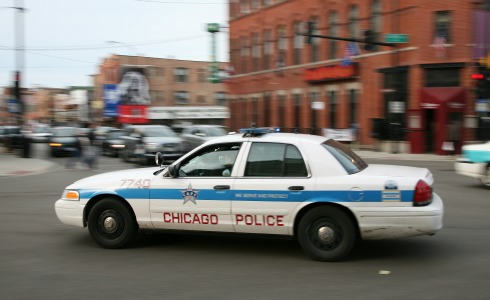Chicago officials are pressing the Illinois legislature to require federal immigration agents to show their IDs while on duty in the state. Last week, the City Council put forward a resolution demanding that ICE officers on civil enforcement missions wear visible name tags and patches, and that they leave masks off. Alderman Michael Rodriguez of the 22nd Ward and Alderman Andre Vasquez of the 40th Ward filed the resolution, with 18 of their colleagues signing on and Mayor Brandon Johnson lending his backing. The measure is now in the Rules Committee, where it will be reviewed before a possible Council vote. The push follows several reports of ICE agents entering Chicago neighborhoods in street clothes and ski masks, detaining residents without showing any badges or papers. City leaders and neighborhood groups warn that such tactics breed panic, uncertainty, and raise alarms about rights and transparency. “Every person on our sidewalks deserves to feel secure, and seeing shadowy masked agents grab neighbors is simply intolerable,” Ald. Rodriguez told colleagues at a recent council meeting. The new bill would bring Illinois in line with similar measures blossoming nationwide, such as New York’s MELT Act and the No Secret Police Act introduced in Congress.
Along with city representatives, Attorney General Kwame Raoul has joined a coalition of 21 states pressing Congress to require clearer ID from federal agents conducting civil enforcement. In a joint letter, the group warns that concealed identities erode public confidence and leave the door cracked for abuse. Closer to home, Ald. Vasquez has filed a formal request for records of any calls between City Hall and ICE, seeking to pin down whether federal and local enforcement are operating in tandem during the raids. ICE has said that mandating mask use helps shield officers from personal attacks, including harassment and doxxing. Acting Director Todd Lyons acknowledged in a recent interview that agent safety remains the agency’s highest priority, although the agency is, he said, “aware of concerns” regarding how the policy is viewed by the public. For the time being, ICE has published no revised guidance on uniforms or visible ID, and no Illinois statutes require federal officers to display clear identification during civil immigration enforcement.
Chicago’s non-binding resolution adds the city to a growing list of municipalities that seek to govern how federal law enforcement operates in local spaces. While the measure itself carries no legal force, it would formally request that the Illinois General Assembly draft and adopt a comparable statute. Advocates maintain that such legislation could diminish community anxiety, bolster public safety, and extend the transparency benchmarks expected of every law enforcement agency. Whether the Assembly will act on the request is unclear, but the dialogue is moving at both the state and federal levels.
Federal rules governing how immigration officers conduct civil enforcement are still unclear. City leaders argue that requiring agents to wear identification at all times is a necessary, basic move toward greater transparency and renewed accountability. While discussion evolves in Springfield and Washington, Chicago is concentrating on ensuring that every enforcement encounter on its streets is accessible to the public—visible, comprehensible, and, when warranted, subject to legal scrutiny.




